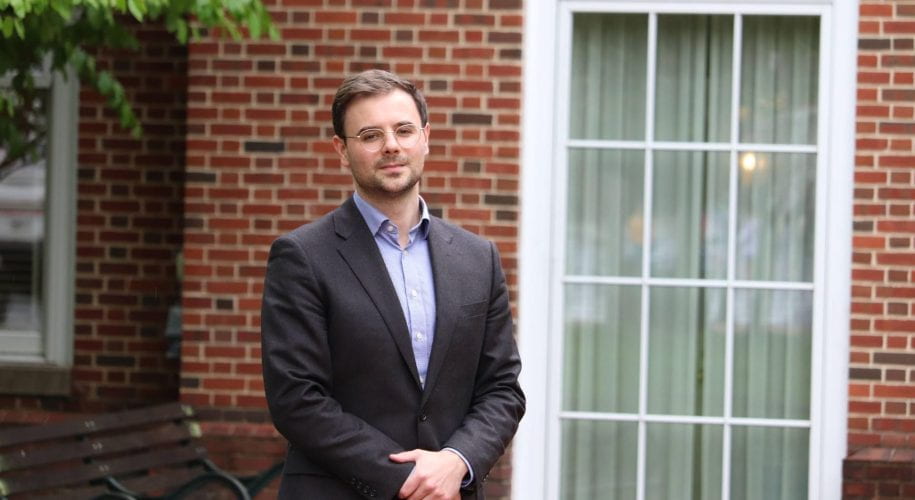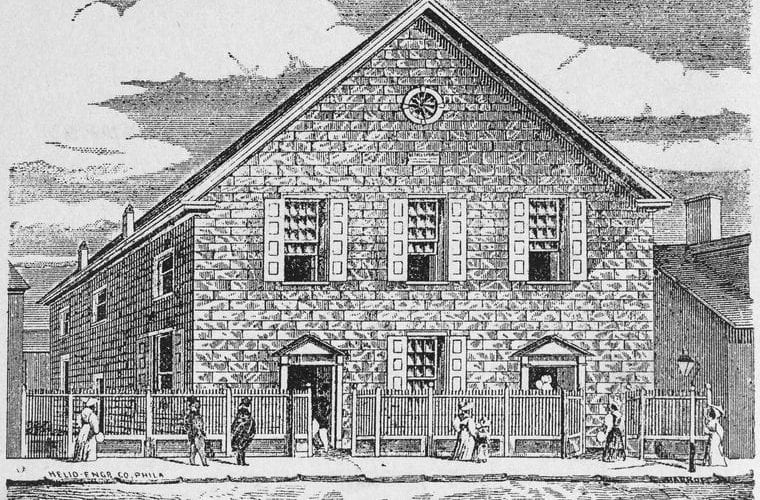

Fall 2023
The Fall 2023 issue of Early American Studies: An Interdisciplinary Journal is out now and available on Project MUSE.

Murrin Prize Winners
The John M. Murrin Essay Prize is awarded for the best article published in Early American Studies each year. Murrin, an early American historian who spent most of his career at Princeton University, was a dedicated and stalwart member of the McNeil Center for Early American Studies community from its founding. The prize is awarded to honor his mastery of the essay form. The following is a comprehensive list of Murrin…

Not a Witch: Public History in a Maine Graveyard – Daniel Bottino and Hannah Peterson
The most famous gravestone in the “old burial ground” of York, Maine is not that of a politician, soldier, or notable author. Rather, it is the gravestone of an ordinary eighteenth-century housewife and mother that draws a constant stream of visitors from across the United States. Standing in an area of the graveyard relatively empty of stones, the finely carved slate marker has endured over two hundred years and remains…

Implementing the Louisiana Purchase – Jacob F. Lee
Being surprised is one of the great pleasures of historical research. As little as a passing reference in a single document can spark new understandings of a person, event, or era. In 2019, I began research on a book project about the long aftermath of the Louisiana Purchase and the United States’ century-long project of colonizing the vast lands it had ostensibly acquired from France in 1803. Early on, I…

Teaching EAS: Amy Dunagin’s “‘Liberty or Death’: Patrick Henry, Theatrical Song, and Transatlantic Patriot Politics”
EAS Miscellany encourages educators to integrate articles from our journal into the classroom. As a part of our new series “Teaching EAS,” we invite you to use this lesson plan as a model for designing your curriculum and teaching Early American Studies articles. If you would like to create other lesson plans using EAS articles, please download our template here and share your plan with us. Teaching EAS: “‘Liberty or Death’: Patrick Henry,…

Teaching EAS: Rachel Herrmann’s “Consider the Source: An 1800 Maroon Treaty”
EAS Miscellany encourages educators to integrate articles from our journal into the classroom. As a part of our new series “Teaching EAS,” we invite you to use this lesson plan as a model for designing your curriculum and teaching Early American Studies articles. If you would like to create other lesson plans using EAS articles, please download our template here and share your plan with us. Teaching EAS: “Consider the Source: An 1800…

Interview with Jordan B. Smith, Wayne D. Rasmussen Award Recipient
Why did you choose to research the making of rum in Barbados? What led you to explore the role of Indigenous people and enslaved Africans in the creation of rum? This article is part of a larger project examining the invention of rum and its emergence as a quintessentially Atlantic commodity in the seventeenth- and eighteenth-century Atlantic world. The project has several inspirations. One was an undergraduate thesis that I…

Summer 2023
The Summer 2023 issue of Early American Studies: An Interdisciplinary Journal is out now and available on Project MUSE.

Interview with Tom Arne Midtrød, Author of the Summer 2023, Free Access EAS Article
Why did you choose to research your topic? What interested you about the topic? I came to this research topic while teaching an upper-level undergraduate course on war and violence in early North America. In the class, we spent some time reading a series of articles on the question of whether—or to what extent—Native Americans were subjected to genocide (or a series of genocides) during the period of European and…

What is an Early American Treaty? – Rachel B. Herrmann
In the summer of 2011, I was in the National Archives in Kew, London, to read papers in the Sierra Leone Original Correspondence collection. I was researching a dissertation that became a book about hunger and the American Revolution, when I did something that most historians have done.1 I read a document that was peripherally related to my research, recorded some initial observations, and moved on because I didn’t know…




